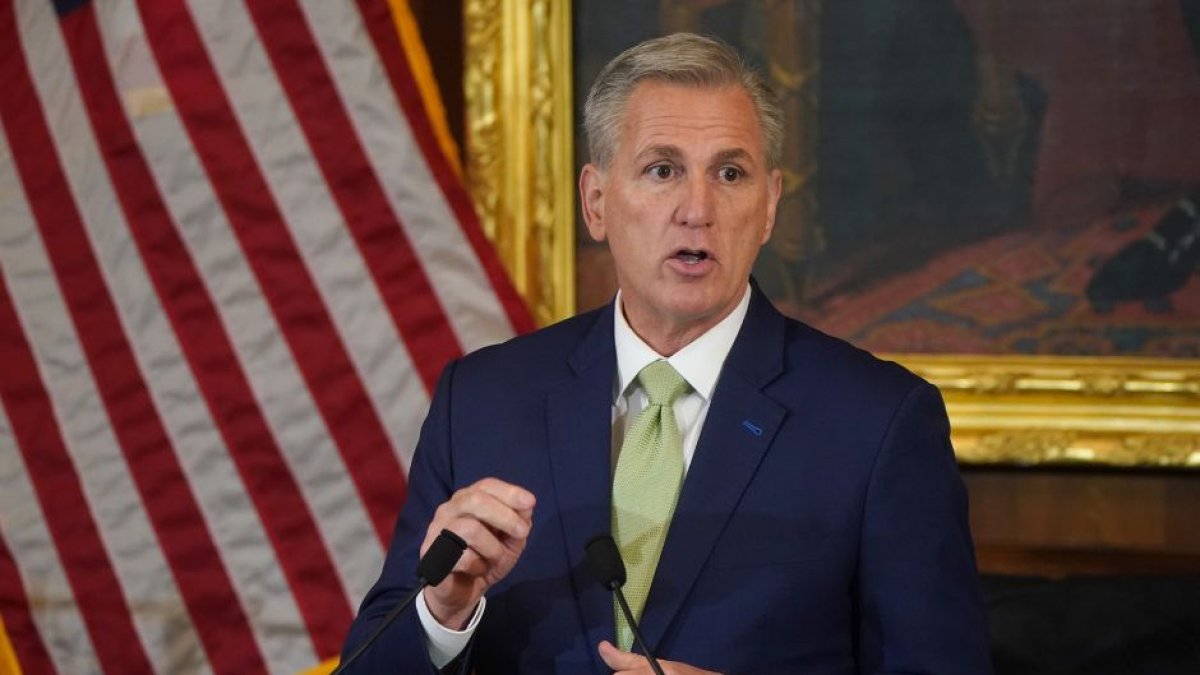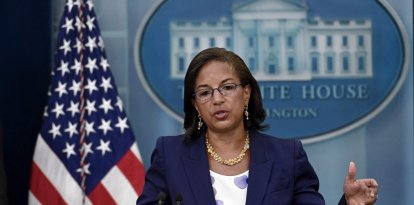McCarthy proposes raising debt ceiling by $1.5 trillion and deep spending cuts
The Republican leader's plan eliminates student debt forgiveness and eliminates Biden's green incentives on energy production.

(Cordon Press)
House Speaker Kevin McCarthy has presented his proposal in order to begin negotiations with the Biden Administration to raise the debt ceiling and avoid default. The Republican leaders proposal includes raising the debt ceiling by $1.5 trillion, offset by a spending cut of $4.5 trillion over the next 10 years. The president demanded that the conservatives remove the threat of default and sit down to negotiate while accusing them of launching measures to "squeeze the middle class further" and benefit the rich.
McCarthy accuses Biden of increasing debt by $6 trillion in two years
McCarthy unveiled his initiative in Congress, calling on Biden to "not ignore this crisis" and negotiate with him. The speaker stressed that the threat of the first default in the country's history is not a joke. "It's time for him to come to the table or risk bumbling into the first default in our nation's history," he said. In a statement, the conservative leader accused Biden of having caused this situation by increasing the debt by six trillion dollars since his arrival in the White House.
More oil, less green energy
McCarthy proposes the elimination of one of the Biden Administration's signature measures of this term, student debt forgiveness, at an estimated cost to federal coffers of some $400 billion. It also takes the war on climate energy measures so dear to Democrats' into the budget: The GOP bill bets on boosting domestic oil and gas production and repealing the green energy incentives enacted by Biden last year.
The Republican proposal includes reducing domestic and military spending to 2022 levels, in addition to setting a maximum growth rate of 1% per year for them in the coming years. Retirement and healthcare programs, which are expected to increase significantly due to the aging of the population, would not be affected by the cuts. In addition, it is counting on recovering unspent covid aid money, a recent budget increase for the Internal Revenue Service would be cancelled, and stricter work requirements would be imposed for some benefit programs.
Biden demands McCarthy to remove 'Default' threat for negotiations
Once the Republican initiative became known, Biden demanded that McCarthy take the threat of default off the table in order to sit down and negotiate. "Take default off the table, and let's have a real serious, detailed conversation about how to grow the economy, lower costs and reduce the deficit," he told the media. However, the president again insisted on the budget he presented a month ago, which envisages savings of $3 trillion over the next 10 years through steep tax hikes.

























